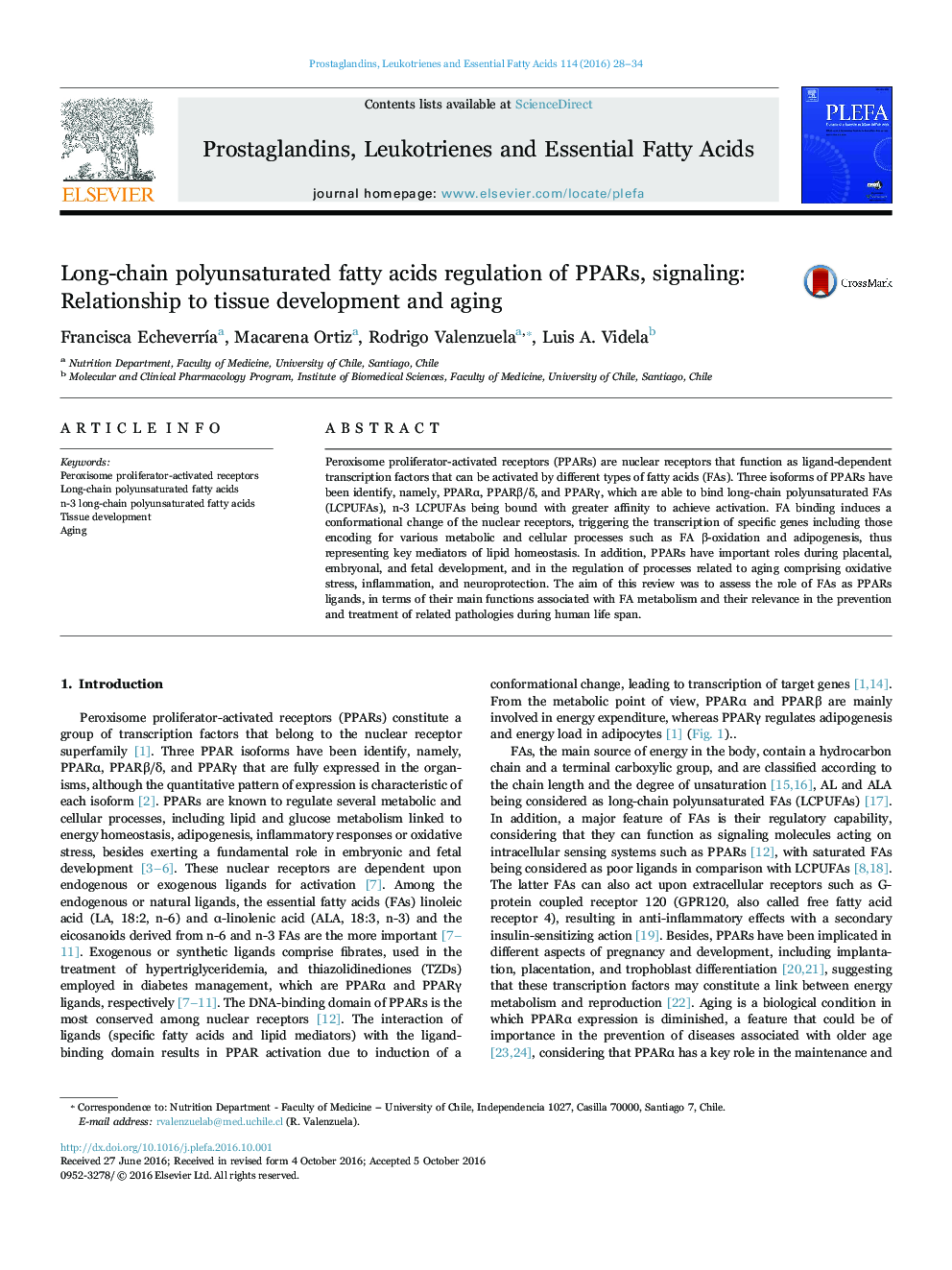| Article ID | Journal | Published Year | Pages | File Type |
|---|---|---|---|---|
| 5584920 | Prostaglandins, Leukotrienes and Essential Fatty Acids (PLEFA) | 2016 | 7 Pages |
Abstract
Peroxisome proliferator-activated receptors (PPARs) are nuclear receptors that function as ligand-dependent transcription factors that can be activated by different types of fatty acids (FAs). Three isoforms of PPARs have been identify, namely, PPARα, PPARβ/δ, and PPARγ, which are able to bind long-chain polyunsaturated FAs (LCPUFAs), n-3 LCPUFAs being bound with greater affinity to achieve activation. FA binding induces a conformational change of the nuclear receptors, triggering the transcription of specific genes including those encoding for various metabolic and cellular processes such as FA β-oxidation and adipogenesis, thus representing key mediators of lipid homeostasis. In addition, PPARs have important roles during placental, embryonal, and fetal development, and in the regulation of processes related to aging comprising oxidative stress, inflammation, and neuroprotection. The aim of this review was to assess the role of FAs as PPARs ligands, in terms of their main functions associated with FA metabolism and their relevance in the prevention and treatment of related pathologies during human life span.
Keywords
Related Topics
Life Sciences
Biochemistry, Genetics and Molecular Biology
Clinical Biochemistry
Authors
Francisca EcheverrÃa, Macarena Ortiz, Rodrigo Valenzuela, Luis A. Videla,
